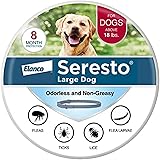Causes of Bad Breath in Dogs, Revealed!
Bad breath occurs not only to humans, but also in pets. Your good dog may be affected by it, and worse, bad breath can be the primary reason of you keeping distance away from the dog you love. It can even be the cause of your dog’s death; no doubt that bad breath is dubbed as the “silent killer of pets”.
Bad breath in dogs is caused by a number of factors. The most common cause is the so-called “tartar buildup surrounding the dog’s teeth”. As in humans, this primary cause of bad breath in dogs is identified as the build up of small particles of food that remains in the mouth after eating. When these food particles are left unwashed, they tend to decompose creating an ideal environment for the oral bacteria to thrive and grow in numbers. As they grow, the bacteria form a plaque which is actually a combination of the decomposed food, the bacteria and mineral. It is the plaque actually that produces a bad odor in your dog’s breath.
Bad breath in dogs can also be caused by oral infections associated with plaque. Note that the plaque, once left unattended, clings to the base of your dog’s teeth, causing the gums to recede and become inflamed. Once the gums are inflamed, they tend to leak blood serum which blends with the plaque, increasing the amount of bacteria in the dog’s mouth. Many dog lovers found this condition as a yellowish coating on the outer base of the teeth, and it is worth noting that most of the dogs affected by this problem eat less.
Perhaps what is more heartbreaking to know is that in severe cases of tartar buildup, the edges where teeth and gums meet become highly inflamed and tend to bleed when you touch them. This is said to be more common among the smaller breeds of dogs. So to prevent it from happening and to treat bad breath in dogs, it is best to consider a dental care which should start as early as possible, before the inflammation of the gums.
Aside from tartar buildup, bad breath in dogs can also be a result of a more severe condition. Several studies have revealed that bad breath in dogs usually signals disease of the kidneys and liver. Well, dogs possessing this kind of disorder are often thin and frail. There are also some instances that bad breath in dogs may be caused by leukemia or some forms of resorptive dental disease in which the deep cavities form in a number of teeth concurrently for no particular reason. These conditions can be treated, however, by considering a dental check up along with special care. In this way, you cannot only help eliminate bad breath in dogs, but help your dog develop good health.
It is finally important to note that dogs affected by severe bad breath often drool. The drooling then is what causes the infection to swell, causing the lips and mouth skin to become inflamed. To prevent this and bad breath in dogs from happening, most veterinarians suggest dog owners to clean their dog’s teeth regularly and schedule them for a dental check up.









